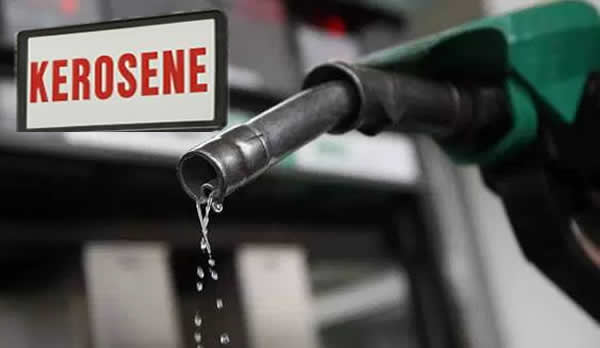In just one year, the cost of residential kerosene, often known as cooking kerosene, increased by nearly 100%.
The average retail price of kerosene per litre increased by about 146% from N441 in November 2021 to N1,083/litre in the same period last year, according to the most recent statistics from the Nigerian Bureau of Statistics for November.
According to the data, the average retail price per liter in November 2022 increased by 4% on a monthly basis compared to the N1,041 recorded in October.
“Price Of Kerosene Reached N1,041.05 Per Litre In October”
According to a state profile analysis, Akwa Ibom had the highest average price per liter in November 2022, with N1,417, followed by Cross River and Abuja, both with N1,367.
On the other side, Borno had the lowest price at N876. This was followed by Rivers at N910 and Nasarawa at N913.
Additionally, zone-specific study revealed that the South-East had the highest average retail price per liter, at N1,209, followed by the South-West, at N1,163, and the North, at N1,097.
N959 was the lowest recorded in the North-East.
While customers paid an average retail price per gallon of N3,594 in November 2022, a 2% rise from N3,517 in October 2022.
88 Percent Increase In Kerosene And Gas Costs In A Year-NBS
It climbed from N1,544 in November 2021 by 133% on an annual basis.
According to assessments of state profiles, Kwara had the highest average retail price per gallon at N4,506, followed by Enugu and Abia.
While Borno and Bauchi had the next-lowest prices at N2,500 and N2,767, respectively, Gombe had the lowest price at N2,430.
When the average retail price per gallon of household kerosene was broken down by zone, it was found that the South-East had the highest average price with N4124, followed by the North Central with N3,811, and the North-East had the lowest average price with N2998.
Diesel and cooking gas were also impacted by the price increase.
NBS reports that the average retail cost to refill a 12.5 kg cylinder of liquefied petroleum gas grew by 1.3% month over month, from N10,050 in October 2022 to N11,050 in November 2022.
LATEST: NBS Reveals Consumers Paid More For Petrol, Kerosene In May
In November 2022, N10,180. It increased by 39% year over year from N7308.06 in November 2021.
According to a zone-by-zone analysis, the average retail price for refilling a 12.5kg cylinder in the South-West was N10,561, followed by the South-South with N10,495, while the North-East had the lowest price at N9,600.
However, prices increased to roughly N11, 000 per 12.5kg in outlets run by independent marketers.
Petrol prices jumped from about N165 per litre to N250 per litre at independent marketers’ stations, N180 per litre at big marketers’ outlets, and N169 per litre at NNPCL Retail stations due to scarcity that persisted until the holiday season.
According to NBS, diesel was sold for N808 per litre.
In January 2023, the Bureau will publish statistics for December.
Household kerosene has been deregulated by the federal government, just like diesel.
Marketers have repeatedly demanded that the downstream sector be regulated.
See How Much Dollar Exchange To Naira Today 26 November 2021
Olumide Adeosun, the chairman of the Major Oil Marketers Association of Nigeria, had advised the federal government to implement phasal deregulation of the downstream sector in order to mitigate the negative effects of a sharp increase in fuel prices, particularly for the Premium Motor Spirit, also known as gasoline.
“Having subsidised PMS for so long, Nigerian institutions now have a diminished capacity to deal with the current local energy crisis. A disruption in any part of the supply chain causes ripple effects and results in queues at stations. As a country, we must begin the process of price deregulation to reduce this inefficient subsidy,” he said.
He asserts that if the government wants to impose subsidies, they should be directed toward certain industries like transportation and agriculture in order to lower the inflation of food prices and increase employment opportunities for Nigerians.
“In tandem, we must find a way to liberalise supply. We must bring transparency and competition into supply to ensure steadier, more efficient supply at optimum prices. Imported products must compete with locally refined products to find a meeting point between the need for local refining and competitively low but cost-recovered prices for Nigerians for sustainability.
See How Much Dollar Exchange To Naira Today 29 November 2021
“The exploration, production, refining of crude oil and the distribution of refined products is an international business with ebbs and flows and has specific models, guidelines, rules, and norms designed to protect and sustain consumers of this type of energy and populations impacted by its supply chain. The government and the industry in Nigeria must demonstrably apply this accepted health, safety, environmental protection, and quality norms to be seen to care for its local populations. To cut corners would be irresponsible, unaccountable, and unsustainable,” he said.
Follow us on Facebook
Post Disclaimer
The opinions, beliefs and viewpoints expressed by the author and forum participants on this website do not necessarily reflect the opinions, beliefs and viewpoints of Anaedo Online or official policies of the Anaedo Online.

